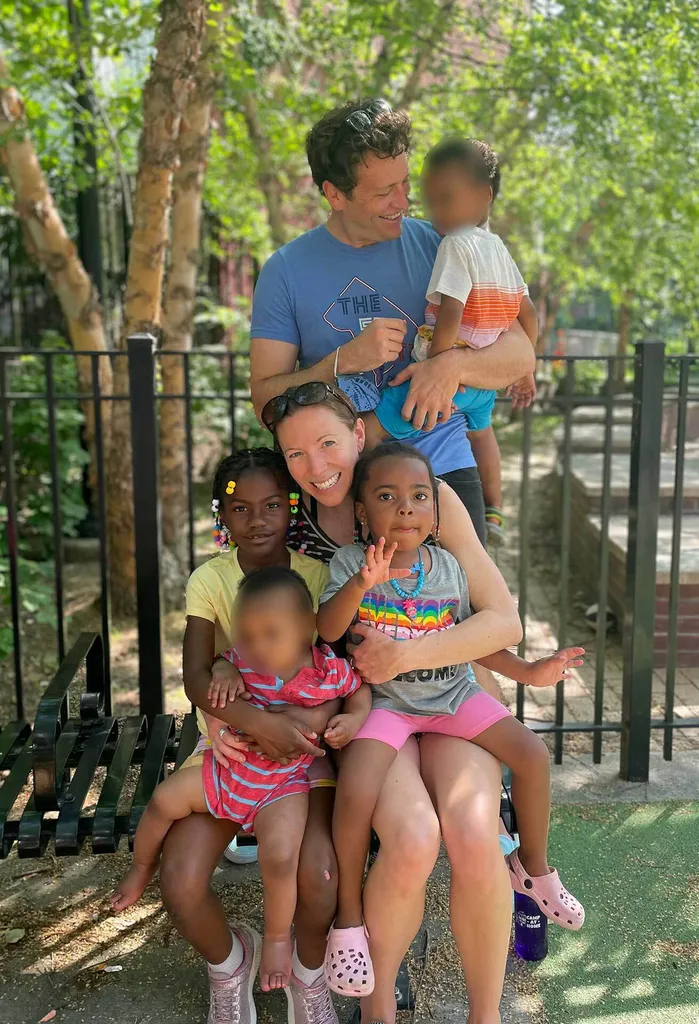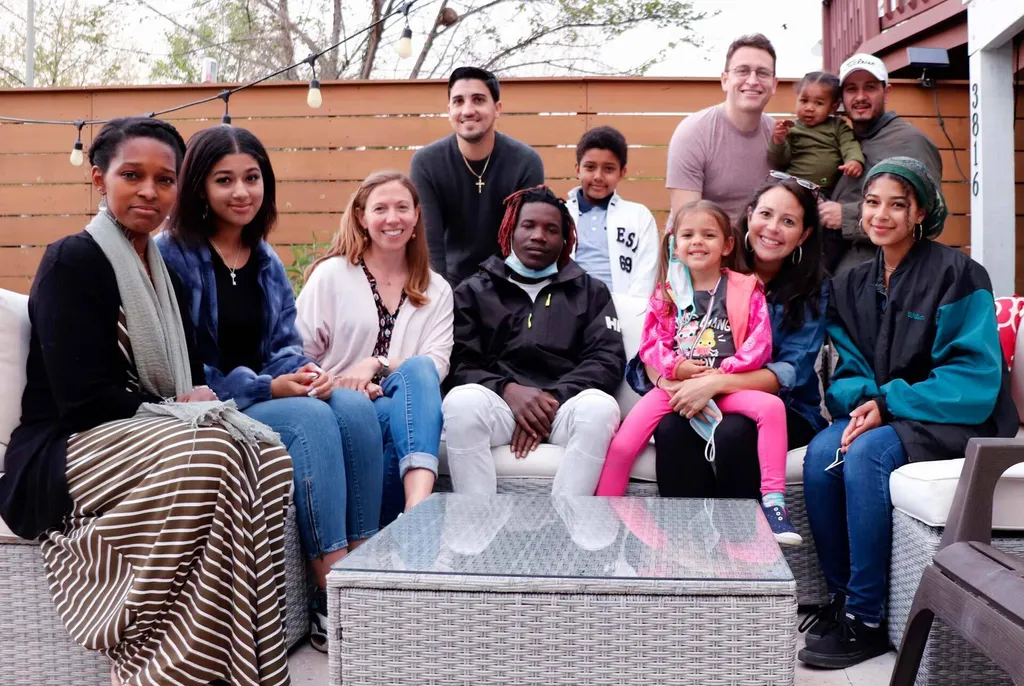- May 06, 2024
- By Karen Shih ’09
In just three months, Taylor Woodman M.A. ’12, Ph.D. ’19 and his wife, Madeleine ’10, M.Ed. ’11, went from raising one child to wrangling four under the age of 6.
The D.C. foster parents had just adopted their oldest daughter, Harmony, in the spring of 2022 and were on the verge of adopting their second, Coco. A newborn also in their care had recently been reunited with his family when they got a call: Could they take a pair of siblings?
They didn’t hesitate. The Woodmans welcomed 1-year-old “M” and 4-year-old “R,” allowing the brothers to remain together in D.C., an unfortunate rarity. What was supposed to be a two-week stay has turned into two years, and they still live with the Woodmans today.

The couple’s dedication led to their recognition this weekend as D.C.’s Foster Parent of the Year for 2024.
“It’s overwhelming,” said Madeleine. “We’re very humbled. We’re very young in this journey.”
About 500 children enter foster care each year in the District of Columbia for various reasons, including abuse and neglect. Because the city has only 140 or so “resource families,” about half of them end up in Maryland, so the need for more people like the Woodmans is dire. Since fall 2020, the couple has fostered six children and provided shorter-term respite care for a handful of others.
“The Woodmans’ acceptance, understanding and implementation of shared
parenting are exceptional,” said Regina Lawson, supervisor of
recruitment for the D.C. Child and Family Services Agency, noting their
success in reuniting children with their biological families. “They
believe that working with the children's former foster parents, birth
family, extended families, and their own extended family will result in
the best outcomes for their children.”
The couple’s interest in fostering converged from different life experiences. Growing up in a low-income household in the Appalachia region of Virginia, Taylor and his siblings had brushes with family support services. And when Madeleine became a special education teacher in D.C. Public Schools, she saw firsthand the struggles some of her students faced.
They applied in early 2020, shortly after Taylor earned his doctorate from UMD’s College of Education, where he is an assistant clinical professor. The certification process includes training classes, background checks and home inspections. After they received their license that September, they got their first call only a month later about a 16-month-old who needed a home. He showed up after a few days in the hospital, wearing footie pajamas. But he wasn’t scared at all—he ran right into their home and started exploring, putting the Woodmans at ease.
“It makes me kind of weepy, talking about him,” said Madeleine. “He was so playful and sweet and loving, and he and his parents and his kin who adopted him taught us a ton.”
[Fostering Community: UMD Program Supports Foster Care, Homeless Students]
The goal of fostering is to reunite children with their families, so visits started with the child’s father just a week after the toddler arrived, keeping the connection while helping the Woodmans learn things like his favorite bathtime songs. Over the next six months, they added visits with his mother and his great-aunt and -uncle, who ended up adopting him.
While the Woodmans didn’t become foster parents intending to adopt, they were always open to the idea. When it became clear that there were no family members able to permanently care for Harmony, then Coco, the agency approached the couple, who said it was “an obvious yes. We were honored to become their forever family.”

Loving the children is easy, but the rest isn’t. The kids come with little information—on occasion just a first name, or an incorrect age. Sometimes they get only a few hours’ notice (having understanding supervisors, including at UMD, is instrumental) and must rely on their network of fellow foster parents to supply clothes in specific sizes or bottles for a newborn. And because the children have experienced trauma, they sometimes act out impulsively or have trouble communicating.
In addition, “a lot of decisions are out of our control,” said Taylor, such as about education, medical care or even haircuts.
Since most foster children in D.C. are African American, it’s important to the Woodmans, who are white, not to violate cultural norms. Madeleine credits her classes at UMD for opening her eyes to white privilege and identifying her own biases. Today, she and Taylor make sure they listen to their kids to ensure they have diverse music, books and toys. They also look for Black mentors in the community who can help guide their children when they have questions the Woodmans can’t answer, such as about colorism, an issue their oldest daughter has already struggled with in school due to her darker skin.
“We haven’t walked in their shoes, so we are very open about that,” Madeleine said. “And we take responsibility when we fall short.”
They hope to inspire others to follow in their footsteps and regularly share their experiences with prospective parents.
No matter how long they stay with the Woodmans, children become part of their family forever. The couple attends every birthday party they can, celebrates holidays like Thanksgiving with the kids’ relatives and have even vacationed in Florida together.
“It’s been really special,” said Taylor. “We’ve learned to redefine what it means to be a family, being open and building relationships.”
May is National Foster Care Month. To find ways to support youth in D.C. or to learn more about becoming a foster parent, visit the D.C. Child and Family Services site or call 202-671-LOVE (5683).
Topics
PeopleUnits
College of Education